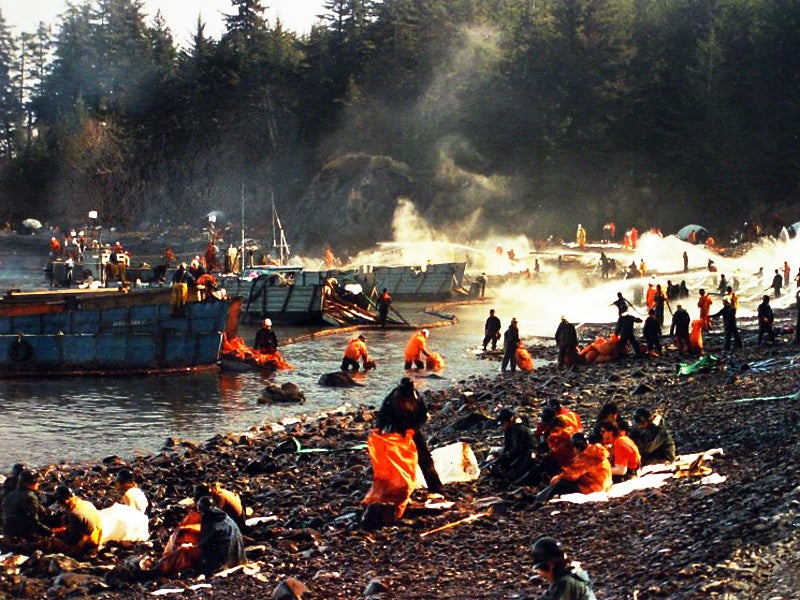Ignoring the History of Exxon Valdez
On the 26th anniversary of the Exxon Valdez oil spill, we look to the future of oil drilling leases in the Arctic Ocean.

This page was published 10 years ago. Find the latest on Earthjustice’s work.
Twenty-six years ago, an oil tanker on its way to California ran aground in Prince William Sound, Alaska. More than 11 million gallons of oil spilled from the tanker into the ocean, leaving 1,300 miles of pristine Alaskan coastline under a slick coat of toxic black oil. Today marks the anniversary of that Exxon Valdez disaster, and sticky globs of oil from the spill still pollute the Alaskan shoreline. Exxon still owes Alaskans over 92 million dollars in damages. Twenty-six years later, this disaster is still ongoing.
In spite of this, the U.S. government appears to be rushing to green light an oil lease sale that opens the remote and iconic Arctic Ocean to oil drilling, but it’s not over yet.
There is an old proverb, often misattributed to Albert Einstein, which says, “The definition of insanity is doing the same thing over and over again but expecting different results.” On the anniversary of the infamous Exxon Valdez oil disaster, this proverb could not be more applicable than it is to any Department of the Interior decision to endorse controversial Bush-era oil leases.
A court-ordered re-analysis of the lease sale decision shows that opening the Chukchi Sea to oil drilling will have even more dramatic and long-lasting effects and risks than previously disclosed. This analysis concluded that there is a 75 percent risk of one or more large oil spills when these leases are developed. With those kinds of odds, the question really isn’t ‘if’ but ‘when.’ Because of its remote location, ice-covered seas, frequent storms and winter darkness, there is no way to clean up a major oil spill in the Arctic Ocean.
There is still time for the Department of the Interior to heed this warning, to learn from past mistakes and to reject this lease sale. To make a rushed lease decision courts disaster and caters to Shell Oil’s desire to drill on its leases as early as this summer. Shell’s planned drilling is even bigger, dirtier and louder than in 2012, calling for more sound disturbances and harassment of whales and seals than the company’s previous plans, and does not address adequately the company’s failed efforts to drill in 2012.
Not only do these oil leases pose an incredible threat to our waters, animals and Arctic communities, they also undermine the Obama administration’s efforts to address climate change and transition to a clean energy future. Despite strong industry pressures that have pushed this lease deal forward, the Department of the Interior can still make the decision to stop the lease sale and reject Shell’s drilling plan. For the sake of the Chukchi Sea, the Arctic peoples and everyone else on this climate-compromised planet, I hope they do.
Opened in 1978, our Alaska regional office works to safeguard public lands, waters, and wildlife from destructive oil and gas drilling, mining, and logging, and to protect the region's marine and coastal ecosystems.